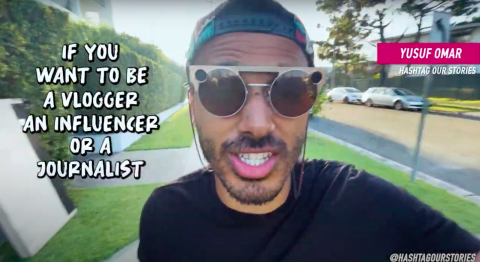
An engaging new resource to improve video storytelling skills is now available for journalists and other content creators. The International Journalists’ Network (IJNet) has published a Mobile Journalism Toolkit, which was developed by cross-platform video publishing company Seen in partnership with ICFJ and Meta Journalism Project.
The toolkit features a series of videos from Seen (formerly Hashtag Our Stories) co-founder Yusuf Omar. It starts with basic tips for shooting mobile video. It then covers storyboarding and narrative structure, ethical storytelling, how to find an audience for your video and more. The toolkit is available in Arabic, English, French and Portuguese.
The toolkit brings together the best of Omar’s and the Seen team’s advice from Facebook Video Storytellers-Africa, a unique online course and ICFJ program that trained 10,000 journalists and content creators in basic video skills, then offered mentoring and story grants to top course participants.
“More and more people in our network are eager to improve their video skills, ideally in their primary language,'' said ICFJ Senior Program Director Jennifer Dorroh. “ICFJ and our site for journalists, IJNet, are excited to partner with Seen and Meta to be able to share these resources in four languages so that more journalists and content creators can learn how to tell video stories.”
Mohamed Omar, News Partnerships Manager - Middle East and North Africa at Meta commented: “We consume information differently now, thanks to mobile journalism. With instant updates and live feeds, this digital storytelling tool has taken over the world. Anyone with a smartphone has the ability to become a mobile journalist today. In short, mobile journalism is creating new opportunities for reporting worldwide, from covering breaking news to creating feature videos on underreported stories to highlighting underrepresented voices in the media. Through this Mobile Journalism Toolkit supported by Meta, journalists can improve and amplify their voices.”
Explore the toolkit here. If you learn something from the toolkit that you use to tell your own story, please share it with us on Facebook, Instagram or Twitter.